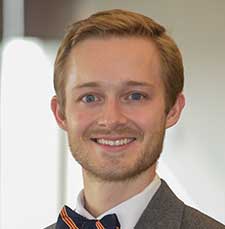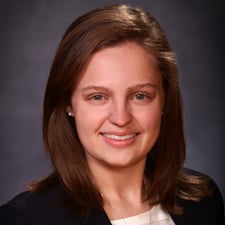For many medical students, one of the challenges of making a Match rank list is balancing their desire for the best clinical training with other professional goals. A resident and a fellow weigh in on the subject, saying it’s less of a predicament than one might think. Sure, some programs won’t like the idea of residents’ pursuing outside interests, they note, but others will. Students should not be afraid to factor those reactions into their ranking choices.
“The biggest bit of advice I’d offer is to not think that residency has to crush your dreams of doing other things,” said Grayson Armstrong, MD, a second-year ophthalmology resident at Harvard Medical School Ophthalmology Residency.
Dr. Armstrong had become interested in health care accessibility while in medical school. He wanted to continue working in public policy during his residency, but he knew that would require time in Washington, D.C.
“I started asking around, and only a few ophthalmology programs were receptive to the idea of my exploring other interests,” he said. “Some of them seemed to be confused by why I would want to do something like that. It seemed superfluous to what they wanted in a resident. But in the end, it helped me commit to my career goals. It was a big factor in how I ranked programs.”
Clinical training, after all, does not cover everything a physician wants or needs to know.
“A lot of us don’t necessarily get leadership training or business training or some of the other more practical aspects of training, and residency is your opportunity to get those things,” said Stephanie Guarino, MD, a pediatric hematology/oncology fellow at Nemours/Alfred I. duPont Hospital for Children, in Wilmington, Del. “One of the things I’ve always been interested in is leadership and leadership development for health professionals, so I looked for those opportunities in residency programs.
“I’ve also always been interested in advocacy and organized medicine. So I looked for places that would support that interest and that passion as much as possible, both in terms of the culture of the institution and being able to get time off to go to meetings. If there’s something you’re interested in outside of clinical practice, then it’s important to look for a program that will support that.”
That might even include work outside of medicine, Dr. Armstrong noted.
“One of my good friends wanted to start a company during residency, and he was looking for a program that would help him do that,” he said. “Now he’s a resident and the CEO of his own company, and his residency program has given him time to make it work. They still expect him to be a good resident, but he can do that too.”
Put your happiness first
While Drs. Armstrong and Guarino might not be typical Match candidates based on their extra-clinical interests, their advice jibes with that of other residents and fellows when it comes to culling and ranking programs: Pick the ones where you will be happy, however you define that term.
For Dr. Armstrong, that included being in a big city; for Dr. Guarino, being close to family.
“At first, I was really drawn to program names, but I ended up realizing that all the programs are good,” Dr. Armstrong noted. “I didn’t have to worry whether I was going to get good training because the regulatory bodies in medicine make sure every program is solid. That gave me the flexibility to consider whether I enjoyed the city and whether I got along with the residents.”
Dr. Guarino had a similar sensitivity but found a different way around it.
“I think we all fall victim to wanting a big name on our program because we think that’s the way to succeed in medicine,” she said. “I suffered from a little bit of that early on, but because of my geographic limitations, I had to let go of it. Once I did, I found myself open to a lot of programs that had more to offer, and I ended up being very happy with where I went.”
With just a few days to go before the Match ranking process closes, on Feb. 22, those medical students who have not yet submitted their rankings should know it is not unusual to still be undecided. Dr. Armstrong took it down to the final hour.
“I knew which programs I would be happy at, but I kept flip-flopping,” he said. “In the end, I had to just trust my gut and know that I felt happiest at one of those places because it would give me the most support. So I went with it.”
And that’s where he matched.
Dr. Guarino submitted her rank list much earlier, knowing she had a tendency to overthink things if she had a lot of time on her hands.
“Some people do better with a lot of different opinions, asking every family member and every friend, but just know how you best make decisions and don’t change that for the Match,” Dr. Guarino advised. “If there’s someone you trust, sure, ask them, but don’t try to please anybody but yourself. This decision is for you.”
More on Match
Check out other Wire posts and follow #MatchThrowback during Match week for additional insights from residents and fellows, including their Match Day memories. Also, share where you matched using #Match2017.





